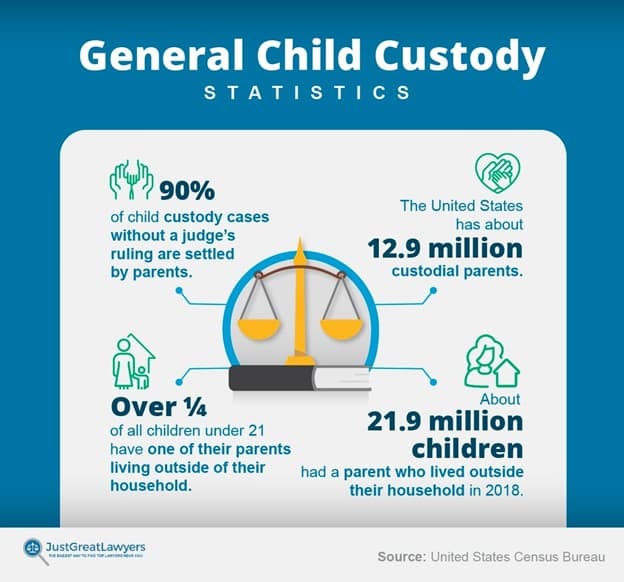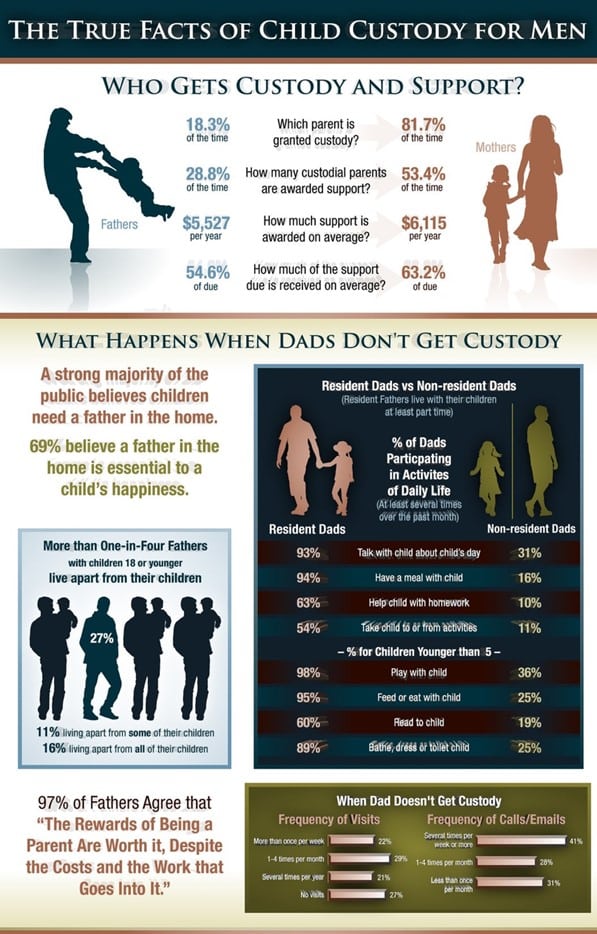During the divorce proceedings, the court establishes the rules for custody of joint children. Parents need to know the following subtleties of the process.

Understand legal aspects
Child custody laws vary from state to state, so you need to know the laws in your area. If the parents cannot agree on who will raise the child after the divorce, the case goes to court. There are such forms of guardianship:
- sole – legal and physical custody is provided to one parent;
- joint legal and sole physical;
- joint physical and sole legal.
When a couple goes through a divorce, one parent may be awarded full custody of their children, giving them primary responsibility for the child’s upbringing and well-being.
The type of custody determined by the court must be in the best interests of the child. The following factors are taken into account in this process:
- wishes of each parent;
- the relationship between each parent and child;
- the ability of the father and mother to provide for the emotional and physical needs of the child, etc.
Here are some General Child Custody Statistics:

Know your rights and responsibilities
Before deciding on child custody, the court will consider various factors, including the living conditions of each parent.
Regardless of the type of custody, as a parent, you have the right to participate in all decisions regarding the upbringing and welfare of your child. You must ensure that you comply with all court-ordered obligations, such as:
- payment of required financial support;
- attending consultations as needed.
It is also important to remember that if joint or sole custody is awarded, both parents have an obligation to continue to be involved in their children’s lives and provide them with emotional support.
And here are some interesting facts about child custody:
Infographics “The True Facts of Child Custody for Men”

Learn state laws regarding divorce and custody
Under the law, the non-custodial parent is required to pay a certain amount of money for the maintenance of his child. The amount of financial assistance is influenced by factors such as:
- income level;
- cost of living in a particular state;
- the needs of the child.
Therefore, it is important to study your state’s laws regarding child support before you start divorce proceedings. For more detailed information or assistance in understanding how these laws apply to your case, you can visit resources like petersmay.com, which provide guidance on navigating divorce and custody issues.
It is also important to consider any special circumstances that may apply to your situation. For example, if you are single or have adopted children, there may be additional steps or requirements when filing for a divorce or entering into a custody agreement. It is important to take the time to study the laws of your state. This way you can be sure that the court will take into account the interests of your family throughout the process.
Consider mediation or co-law to resolve disputes
Mediation is the involvement of a neutral mediator who works with both parents to reach an agreement on issues such as:
- schedule of visits;
- sole or joint custody and other issues related to the best interests of the child.
The mediator helps parents to prioritize and make decisions in a less conflicting atmosphere.
Co-law is a voluntary dispute resolution process in which a lawyer works with both parents to reach an agreement without litigation. Both processes allow parents to create parenting plans that comply with state child custody laws and regulations. Thanks to this, friendly relations between the former spouses are maintained, but at the same time, they can protect the interests of their children.
Prepare for court hearings and court appearances
At this stage, there are:
- study of relevant case law and laws;
- gathering evidence to support your arguments;
- preparation of witness statements, if necessary;
- consultation of a lawyer, if necessary;
- willingness to present persuasive arguments during the hearing.
It is also helpful to have an understanding of the litigation process to be as organized as possible. Preparing ahead of time will help you present your arguments clearly and concisely, which will give you the best chance of getting a positive outcome.
Develop a parenting plan that suits both parents and children
Parents should analyze their schedules and consider what arrangement will be optimal for all parties. A successful parenting plan should include:
- the time that both parents should spend with children;
- ways of communication between both families;
- special needs of children;
- any special events that both parents can participate in.
Before you sign a parenting document, make sure that the terms and conditions are suitable for everyone involved. Parents should discuss any issues with each other before finalizing the plan. If necessary, use a mediator or contact a family law professional to help you draft an agreement.
Seek professional help if necessary
To protect your rights and interests in the divorce process, you can contact a divorce lawyer Chicago. A family counselor can advise you on how to deal with the emotional aspects of divorce and help you develop a care plan. Thanks to the services of a mediator or online services like PAOnlineDivorce, the spouses will be able to conclude a mutually acceptable agreement for both parties, taking into account the individual circumstances of the case and the needs of the children.
Professional help can play a decisive role in determining the type of child custody after divorce.
